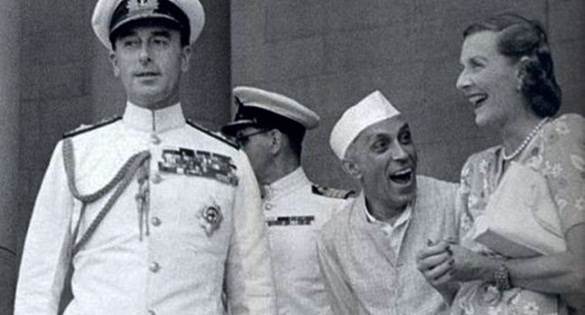
16-Dec-2021
Nehru's Balochistan blunder was just as devastating as his Himalayan Blunder
Jawaharlal Nehru's Balochistan mistake may not be notable today, however, it is as annihilating and prosecuting all things considered and decisively as the large Himalayan bungle or even the Kashmir indiscretion.
The then-Government of India wouldn't back the Baloch province of Kalat, which was endeavoring to agree with New Delhi to get away from Pakistani occupation, because of a slanted feeling of need and key nearsightedness.
In 1946, the Khan of Kalat met with key Congress pioneers to examine the destiny of Balochistan. Truth be told, one of his agents met with Abul Kalam Azad, the then-President of the Congress, yet the Maulana scrutinized the idea of Balochistan as a free element.
More terrible, as indicated by a review by the Foreign Policy Center, a British think bunch, Nehru returned the promotion records endorsed by the Khan of Kalat in 1947.
At the point when the British left the subcontinent, Kalat, which included virtually all of Balochistan, was an independent republic. Truth be told, it was Mohammed Ali Jinnah, as a legal advisor, who helped the Khan of Kalat in setting up his brief for Balochistan's freedom.
As indicated by Tilak Devasher's new book, Pakistan: The Balochistan Conundrum, 'In 1946, Jinnah, the Khan of Kalat's lawful counsel, submitted to the Cabinet Mission a Memorandum that, in addition to other things, pushed the topographical autonomy of Balochistan from British India.'
Latest Read- Fishermen are leading anti-CPEC protests in Balochistan for China's Project
The Balochistan commencement started on March 27, 1948, with an All India Radio (AIR) broadcast announcing a public interview by V.P. Menon, a government employee who had assumed a vital part during India's Partition, saying the Khan 'was squeezing India to acknowledge Kalat's promotion,' yet 'India would not have anything to do with it.'
The following day, the then-Home Minister, Sardar Vallabhbhai Patel, gave an explanation, asserting that no such solicitation had been gotten, yet the damage had as of now been finished. The terrified Pakistani armed force attacked Kalat, and nothing remained at that point but to hold on and witness the addition of Balochistan.
For India, it was an instance of a wasted chance. Maybe the Nehru government underrated the essential significance of a free Balochistan.
Maybe it erroneously accepted, as indicated by the center Kautilyan idea, that a solid neighbor—for this situation, Pakistan—was valuable to India. Tragically, this outlook endures in the country, with progressive legislatures reluctant to perceive the deceptive idea of the idea of Pakistan.
As Devasher contends in the book, 'most Baloch imagine that the Khan of Kalat was not just compelled to sign the Instrument of Accession, yet that it was an unlawful promotion.'
This institutional indifference joined with famous obliviousness and philosophical complicity, has made India act protectively in Balochistan, yet in addition in Kashmir for almost seventy years, until the Narendra Modi government chose to challenge the status quoist mentality.
In this specific situation, Devasher's work on Balochistan is a welcome expansion to the subject's writing. For it persuasively exhibits not exclusively Pakistan's Balochistan difficulty, yet additionally how inorganic the simple idea of Pakistan is.
Devasher portrays Balochistan's alienation in two ways. One is the 'Baloch story,' which 'lays on the imbued chronicled memory of autonomy and the individuals of the shameful act accept they have endured since being compelled to agree to Pakistan.'
'The foundation has never perceived the way that Pakistan is a multi-country,' the creator quotes Baloch political pioneer Abdul Hayee Baloch as expressing. Pakistan was set up in 1947, yet Balochs, Pathans, Sindhis, Punjabis, and Seraikis had been in the country for ages. They have particular societies and dialects.'
Read More- India-Russia Relations are “Back on Track”
The subsequent explanation is a post-increase peculiarity where the Baloch were exposed to coordinated financial double-dealing, segregation, and even mistreatment. It's nothing unexpected that Balochistan's extent of public GDP tumbled from 4.9 percent during the 1970s to under 3% in 2000.
'The region has the best baby and maternal demise rates, the most elevated neediness rate, and the least proficiency rate in Pakistan,' adds Devasher. Inside Balochistan, 'the normal Baloch is twice pretty much as poor as the normal Punjabi, Pashtun, or Hazra inhabitant.'
Even megaprojects supported by China, for example, the Gwadar Port and the
China-Pakistan Economic Corridor (CPEC), have expanded Balochi protests. In view of past encounters, local people are worried that the positions and different advantages gave by these undertakings will be exploited by pariahs.
Pakistan merits what it wishes to incur for its eastern neighbor: 1,000 injuries into its real life, the most profound of which is an assault on the umbilical ropes that attach Pakistan to Balochistan.
Also Read- The Real Idea Behind 'Akhand Bharat'
Notwithstanding what peaceniks and Track-IIwallahs say, a divided and broke Pakistan is India's most ideal choice. Nothing bears the cost of India a preferred chance to Balkanize Pakistan over the Balochistan emergency.
India might have wasted 70 years by failing to address the issue, however, the capital has not been totally lost. Devasher's book fills in as a convenient update.

Student
I can help you with the following writing services- 📌 SEO friendly content 📌 Articles 📌 Blog 📌 Social media content 📌 Copywriting 📌 Marketing content 📌 Optimum research on the content 📌 Proofreading and Editing 📌 Product descriptions 📌 Email writing 📌 I provide lucrative content strategies that differentiate your business from the rest of the competition.
Join Our Newsletter
Subscribe to our newsletter to receive emails about new views posts, releases and updates.
Copyright 2010 - 2026 MindStick Software Pvt. Ltd. All Rights Reserved Privacy Policy | Terms & Conditions | Cookie Policy